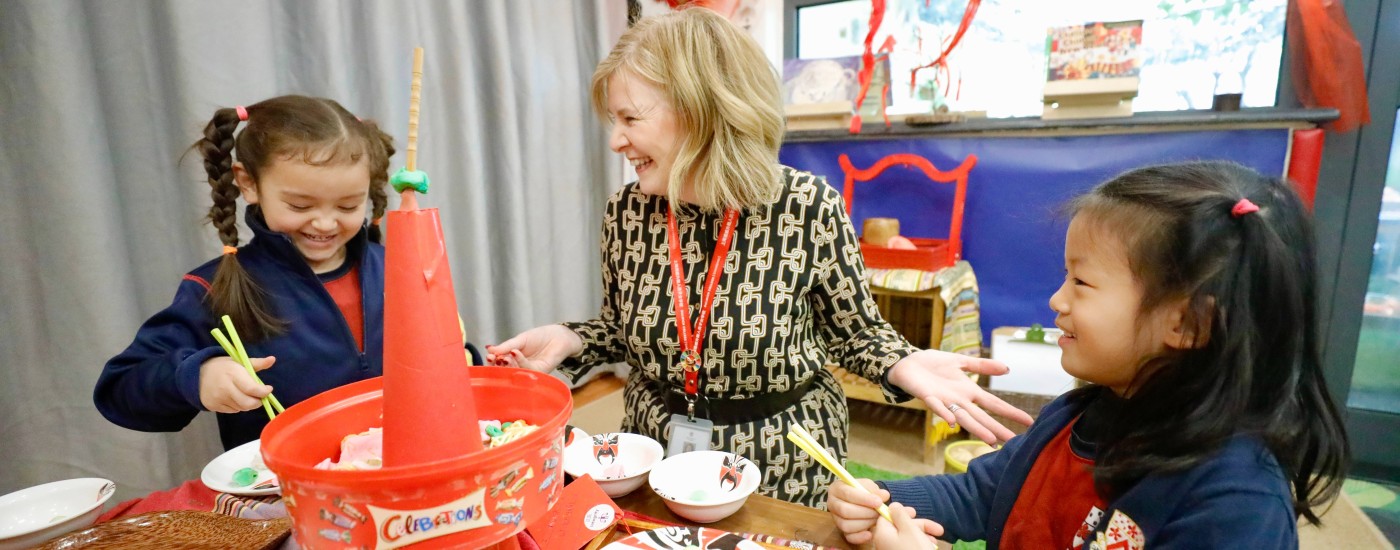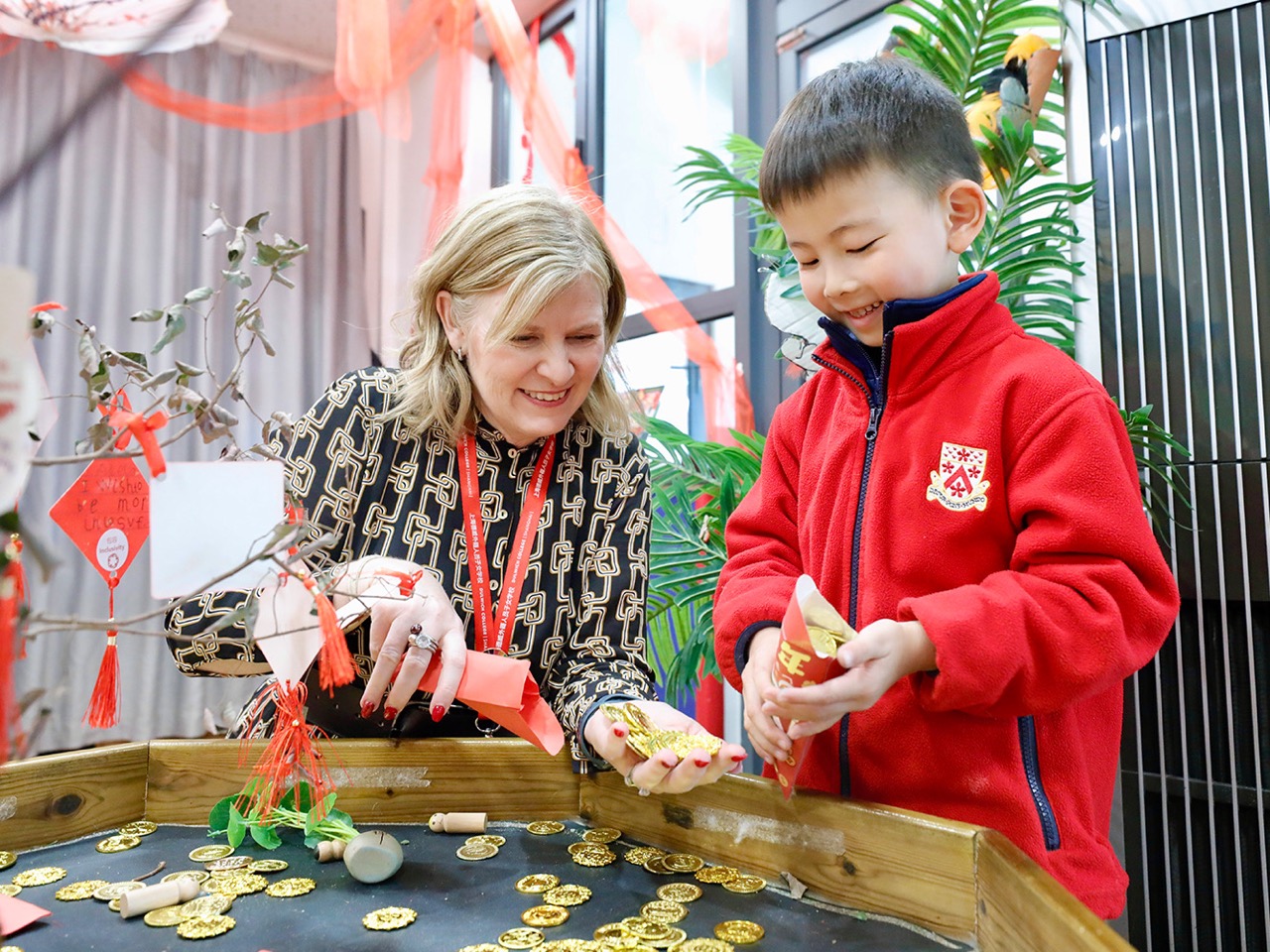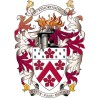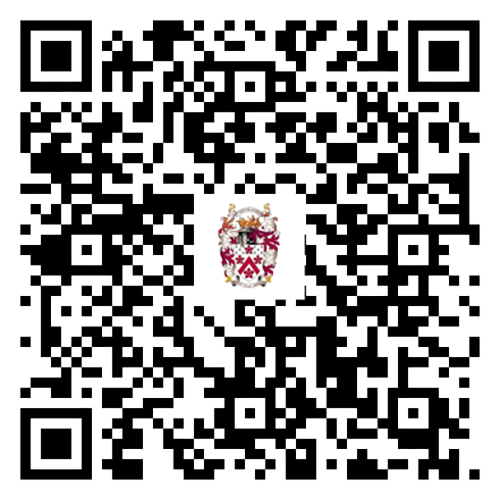How do young children learn through play?

In our Toddler, Nursery and Reception classes, we lay the foundations for a lifelong love of learning in a warm, safe yet exciting environment. Our child-led approach inspires the best in each student. But what happens in the classroom and how do they actually learn? Carol Dutch, Assistant Head of DUCKS, who oversees our Early Years curriculum (pictured above), explains.
The Importance of Laying the Right Foundations
Did you know that a child’s brain goes through two phases of intense development in the journey from birth to adulthood? If you have a teenage child, then you already know adolescence is the second of these critical periods! But the first one begins around the age of two – when your child is a toddler.
We encourage families to begin a child’s DUCKS journey from their second birthday, recognising the importance of getting the foundations right during a time when their own rapid development means our learning approach will have the highest impact.
At this point, the number of synapses in the brain doubles. Synapses are the connections between brain cells are where learning happens. Two-year-olds have twice as many synapses as adults! The experiences children have in this time have lasting effects on their development as their brains are learning faster than at any other time of life.
We remind parents at the start of the Toddler year to get ready: their children are going to change and develop in so many ways over the course of the year into independent, capable little people. Our youngest students amaze us every day!

What is Child-led Learning and Play-based Exploration?
The foundation of our teaching approach in Early Years is child-led learning and play-based exploration. Previously the concept of play was misunderstood and under-appreciated, written off as a precursor to ‘real’ learning. Thankfully, an increasing focus on the ‘inquiry method’, where children are encouraged to develop their own play and independent exploration, has left no doubt that such an approach works in this foundation stage.
In Early Years, we apply this approach to encourage curiosity and ignite passions, nurturing young learners who are not afraid to fail but rather are able to learn from their mistakes and who are creative, well-rounded, adaptable and questioning. In fact, these goals mirror those of the IB curriculum in Senior School, showing the consistent teaching experience provided throughout a student’s educational journey at Dulwich Pudong. And, by creating a language rich environment with exposure to both Mandarin and English, at a time when a child is naturally acquiring all language, we present the most favourable conditions for learning.
In the classroom, opportunities to explore understanding through imaginative roleplay in the home corner and the muddy outdoor kitchen, for example, transfer children’s knowledge of their real-life experiences. Our Toddler and Nursery parents will often witness their children playing ‘school’ at home as they explore the concept of teacher/student through imaginative play.
This is when a love of learning happens. Exposure to nature, music, reading, sport, language, maths - the list is endless. All of it is carefully underpinned with our College Values to ensure emotional intelligence is also nurtured. These little ones have a lot going on!
Growing up is a busy, messy, precious time, exhausting and demanding, wonderful and overwhelming, but never boring. What a privilege to accompany our Early Years students on their journey.
Child-led learning and play-based exploration encourage positive interactions between students and adults, who carefully prepare play-based activities that are designed to nurture important skills.
For example, activities such as wet and dry sensory play help children develop cognitive growth, while also enhancing their sensory abilities. Through a series of fun and engaging tasks, children learn and develop their communication, language and fine motor skills, as well as mathematics and problem-solving.
By Year 1 and Year 2, DUCKS teachers build upon and extend this to a more structured approach to learning following the English National Curriculum.
Our Early Years students at DUCKS are immersed in our Dual Language programme, providing opportunities to strengthen a child’s cognitive abilities through continuous exposure to rich language.
As part of this approach, our highly experienced English teachers lead the curriculum using spoken English. The children’s learning will be supported by an Assistant Teacher who speaks Mandarin as a first language, but who speaks fluent English as well. The physical learning environment, including print, will be in both English and Mandarin.
The aim of the Dual Language approach in DUCKS is to develop fluent speakers in English and Mandarin by the end of Year 2 who can comfortably switch from one language to another, while always remaining secure in their first language.
Mathematics forms an integral part of our Early Years curriculum. At Dulwich Pudong, children as young as two years old begin a structured engagement with mathematical concepts.
To support that process our Early Years teachers use tactile objects, in activities such as singing, storytelling and cooking, to engage children to independently explore mathematical concepts for themselves. The role of the teacher is to interact with the child and stimulate their thinking process.
Our approach takes advantage of each child's natural aptitude and curiosity to lay a foundation of mathematical knowledge and to instill a love for the subject.
At our school, we use the ‘Read Write Inc.’ programme to help young children learn to read and write. This program focuses on teaching phonics—how letters and sounds work together—so children can build strong reading and writing skills step by step.
In Reception, children start by learning basic letter sounds and blending them to read simple words. They also practice letter formation and read simple storybooks using the sounds they have learned to build comprehension. In Years 1 and 2, they build on this foundation, developing their comprehension, vocabulary and reading and writing ability.
We regularly check how the children are doing so we can give extra support if needed. This ensures every child progresses at their own pace and gains confidence in reading and writing to transfer to their learning in every curricular area.










